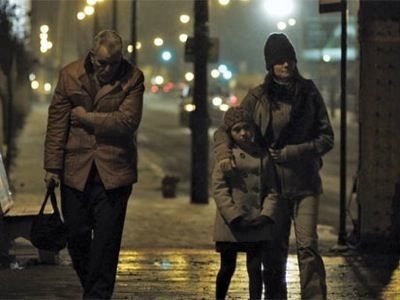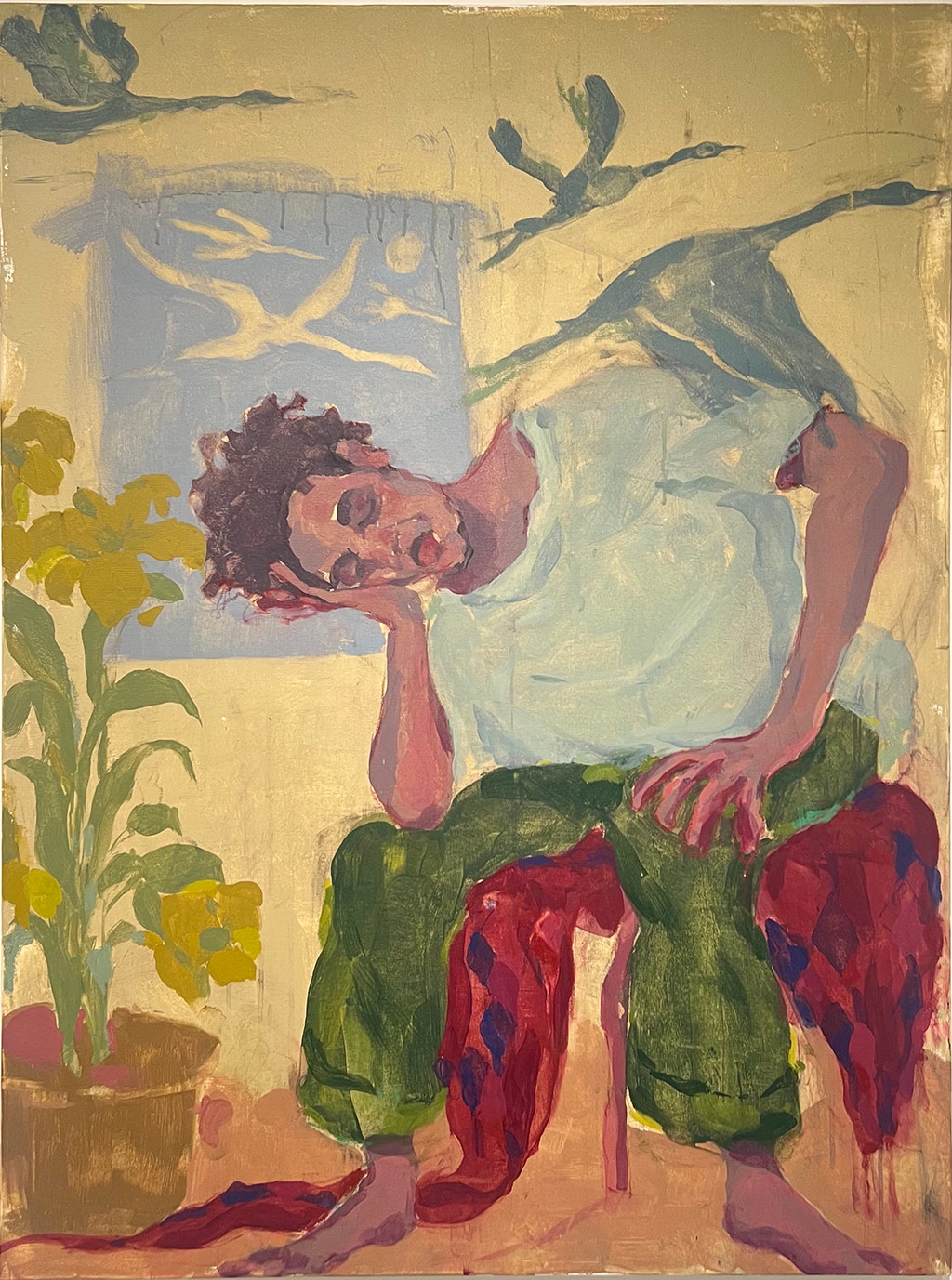
Directed by Joe Maggio, Starring Dennis Farina
United States
A couple hours ago–6pm CST to be exact–somebody–an intern, a volunteer, a professional carpet tacker–somebody–rolled out the red carpet to start the 47th Chicago International Film Festival. It was humming with excitement over on East Randolph at the Harris Theatre, as fans and press and associates ushered in the kickoff screening The Rites of Joe May. Or I can only imagine, because I wasn’t there. But director Joe Maggio and star Dennis Farina were slated to show, and I’m sure there were some other guests of note. My press pass doesn’t cover the red carpet, so I watched the screener last night, and I’m okay with skipping Joe May on the big screen.
The movie makes sense as the festival opener. Set and filmed in Chicago, it was produced by Steppenwolf Films (the film arm of the renowned Chicago-based theatrical company), and it stars local veterans of the stage–Farina and Gary Cole.
It’s great to see a locally based and produced flick. Joe May captures the cold, bleak atmosphere of Chicago in the winter, and shots of its streets incite both pleasure and empathy. Watching Farina walk around with his coat collar up, huddling on the CTA seats, waiting for the 8 as the snow cuts into his face–an all too familiar displeasure–grounds the film in my own sensation of the city. The grey, cold, unabating winter is one of Chicago’s distinctions, and my attraction to the aesthetic quality which captures this feeling is no doubt a product of my current sense of place. Similarly, I have never been to Archie’s Pub, but I have been to bars like it, justas I’ve seen grizzled, old faces like Joe May’s with collars drawn up to the shield the elements.
The familiarity of appearance and setting, along with the loose narrative association of the gangster film, lends Joe May a shade of nostalgia. But it is this shade of nostalgia for a character and personality–which we no doubt have seen in movies and perhaps have also encountered in our daily lives–which supplies the movie with an immediacy and presence coinciding with the reality of lost dreams and, ultimately, a wasted life. The good old days of the quick hustle are gone. Joe’s visions of ‘being something’ are as vacant and shit-ridden as the empty pigeon coop which awaits his return from the hospital at the film’s opening. Nostalgia and aspiration equal nothing for Joe.
Joe gets his chance at redemption when a single mother, Jenny (Jamie Anne Allman), and her daughter, Angelica, take him in. But even here, it’s an odd phenomena. Joe is stubborn and egotistical to a degree where he deems everyone else as wrong, everyone else as at fault, be it for the towing of his car, the loss of his apartment, or the loss of his pigeons. His openness at moving in with Jenny and Angelica has more to do with the shared past–that is, his apartment of 40 years–than with the explicit opportunity offered by Jenny. Certainly, Joe does develop a bond with Jenny, and there is a genuine adoration between him and Angelica. But the film can’t erase the fact that Joe is a bastard. And maybe that’s a good quality to the picture as a whole. It certainly complicates the film’s humor; at the beginning of the film, Joe learns that his old lodgings are no longer his and he says to Angelica, who is playing in the hall, “Life is shit kid.” I laughed because the exchange is funny, and indeed many of the exchanges between Joe and Angelica are laughable like this. But when I got to thinking about that line later, I found it terribly unfortunate; maybe it is this unfortunate nature existing in and about the characters which drives The Last Rites of Joe May. Certainly, it provides the psychological and thematic context for the film’s conclusion (no spoilers there–read the title).
So the callous upshot is that I wasn’t overly moved or concerned with the kickoff movie. Dennis Farina is really good, and the peripheral characters do a good job of establishing the distances and contiguities between the past life of Joe May and the one we are witness to. I appreciate The Last Rites of Joe May as a film about a man’s final descent and disillusion.
Seen at Chicago International Film Festival 2011






